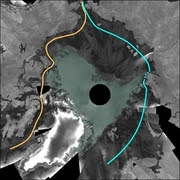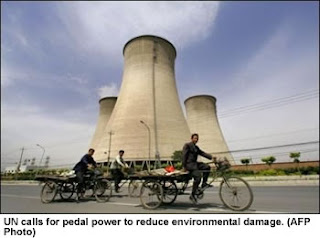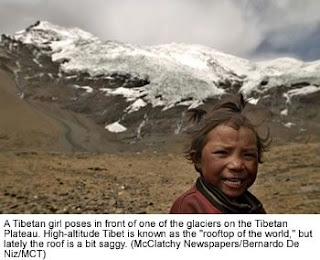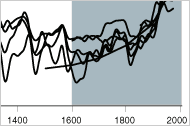Desperate times, desperate scientists

Salon.com Dec. 12, 2007 | How dire is the climate situation? Consider what Rajendra Pachauri, the head of the United Nations' prestigious Intergovernmental Panel on Climate Change (IPCC), said last month: "If there's no action before 2012, that's too late. What we do in the next two to three years will determine our future. This is the defining moment." Pachauri has the distinction, or misfortune, of being both an engineer and an economist, two professions not known for overheated rhetoric. In fact, far from being an alarmist, Pachauri was specifically chosen as IPCC chair in 2002 after the Bush administration waged a successful campaign to have him replace the outspoken Dr. Robert Watson, who was opposed by fossil fuel companies like ExxonMobil. So why is a normally low-key scientist getting more desperate in his efforts to spur the planet to action? Read more





















